Search
Remove Ads
Advertisement
Summary 
Loading AI-generated summary based on World History Encyclopedia articles ...
Search Results
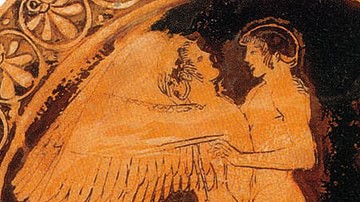
Definition
Zephyrus
Zephyrus was the god of the west wind and the messenger of spring in Greek mythology. He was known as one of the four Anemoi, or wind gods, each of whom represented a cardinal direction and, except for Eurus, a season. Zephyrus was often...

Image
Zephyrus and Hyacinthus
Attic vase thought to depict Zephyrus and Hyacinthus, from Tarquinia, c. 480 BCE.
Museum of Fine Arts, Boston.
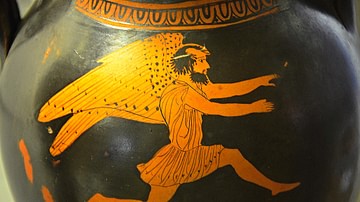
Definition
Boreas
Boreas is the god of the violent North Wind in Greek mythology. He is the son of the Titan Astraeus and Eos, the goddess of the dawn, and brother to Zephyrus (the West Wind) and Notus (the South Wind). He is best known for his bad temper...
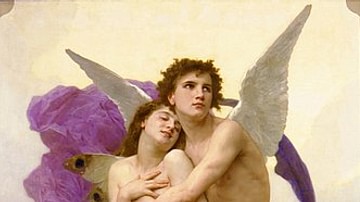
Definition
Psyche
Psyche was the goddess of the soul in ancient Greek and Roman mythology. Born a mortal woman, her beauty rivaled that of Aphrodite (Venus) and inspired the love of Aphrodite's son, Eros, god of desire. After completing a series of seemingly...

Video
Eros-Cupid and Psyche, the Greek and Roman Gods of Love and the Soul
Eros in Greek mythology, known as Cupid in Rome, is the god of love but more specifically, the god of physical and passionate desire. He is often referred to as a son and attendant of Aphrodite (Venus), the goddess of love and beauty, and...
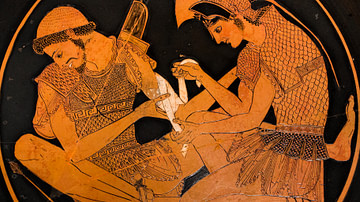
Definition
Patroclus
Patroclus is a figure from Greek mythology who fought in the Trojan War and was most famous for his close friendship with the Greek hero, Achilles. He followed Achilles to Troy and would ultimately die because of him and his actions. Patroclus'...

Video
The Sky Gods of Greek Mythology
Did you know that there was not just one deity for the night sky, but numerous gods, titans and nymphs all responsible for different aspects of the night sky, the winds and the seasons? When you think of the Greek god of the sky, or the...
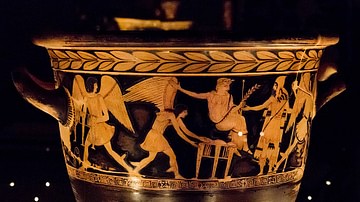
Definition
Harpy
A harpy, also known as a harpyia (pl. harpyiai), is a part-bird, part-woman monster in Greek mythology. Known as the 'Hounds of Zeus,' they were the personification of storm winds and were under the command of Zeus, who would send them out...
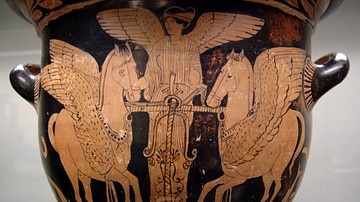
Definition
Eos
Eos is the personification and goddess of the dawn in Greek mythology. She is the daughter of the Titans Hyperion and Theia and the sister of Helios (Sun) and Selene (Moon). Dressed in a saffron-coloured mantle, Eos rides on her chariot in...
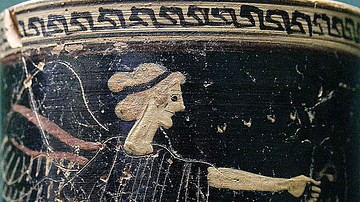
Definition
Iris
Iris is the goddess of rainbows and an important messenger between the gods and humans in Greek mythology. She was most commonly portrayed as the personal messenger of Hera. Iris was the daughter of the Titans Thaumas and Electra and the...